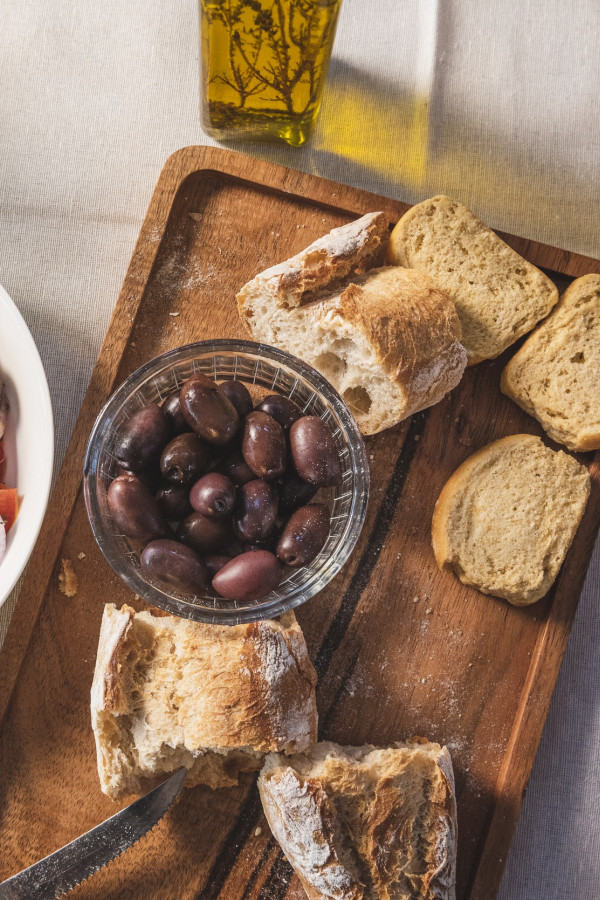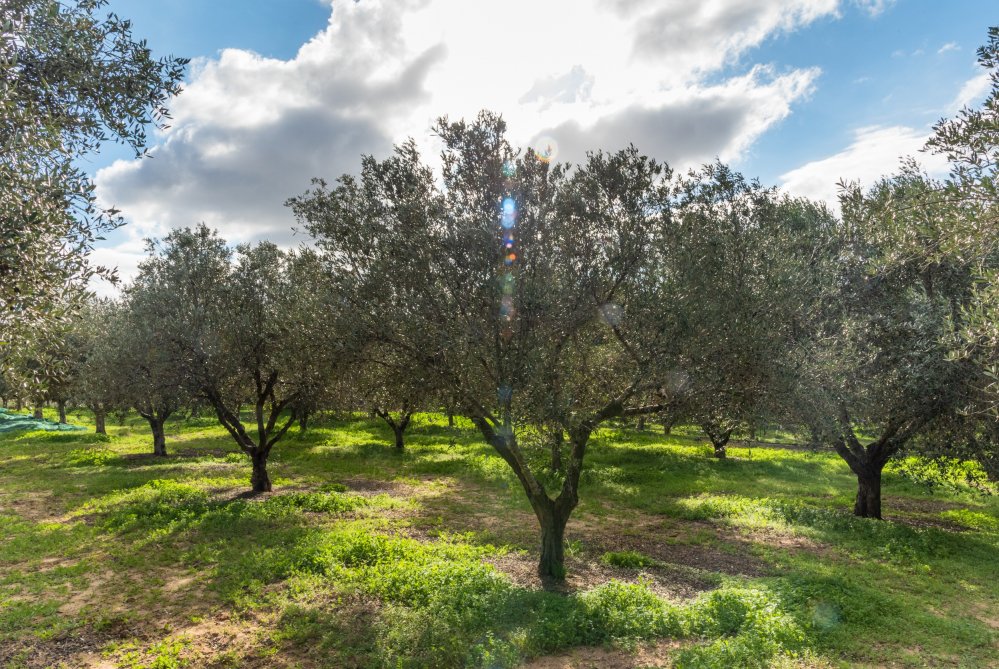Olive trees have been cultivated for many centuries in the Greek land. According to Greek archeologist Panagiotis Anagnostopoulos’ research, the cultivation of olive trees on the Greek terrain first began in Crete, 3,500 years ago.
Green olives contain a higher percentage of olive oil, which is noticeable in their taste (and bitterness), and are kept in brine for a longer time. Black olives, on the other hand, need a softer brine and are mainly used for making olive paste, oil bread, pizzas, pies, salads, etc.

